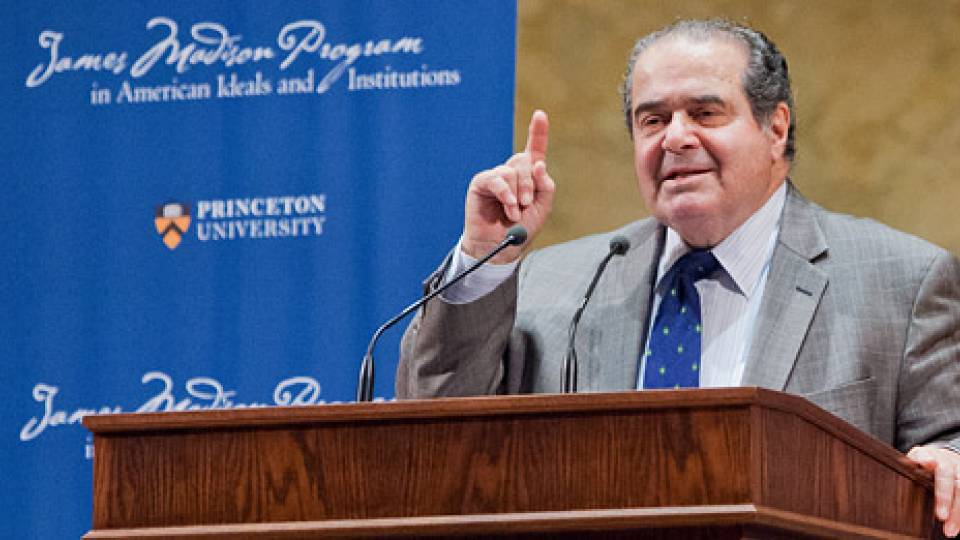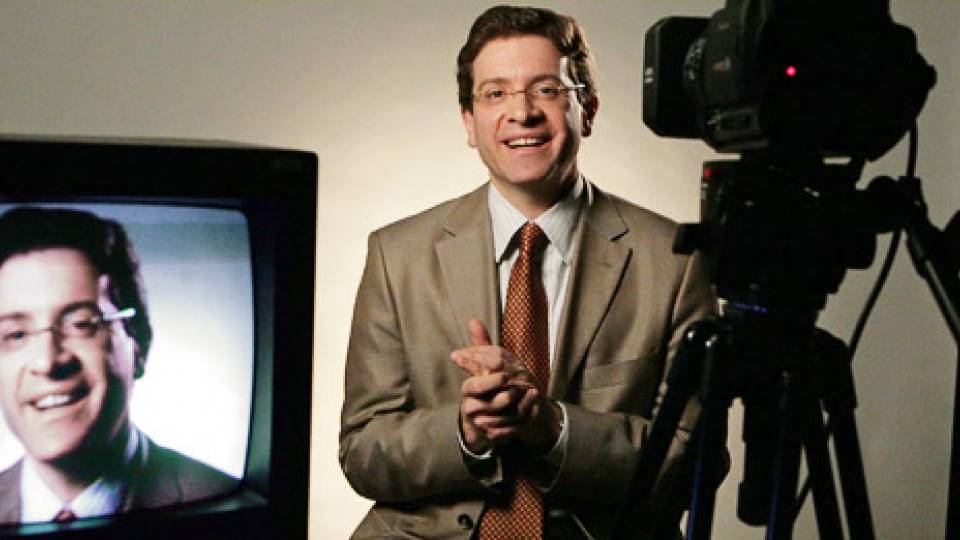“Despot” and “tyrant” are not terms generally associated with Abraham Lincoln. Yet in his efforts to preserve the Union as the Civil War erupted, Lincoln took drastic measures that were criticized as overstepping the limits of executive power.
Lincoln’s controversial exercise of presidential wartime authority -- a familiar subject in today’s political environment -- was the focus of a recent seminar for New Jersey high school teachers enrolled in a program at Princeton that aims to bolster their knowledge of American history and provide fresh perspectives to bring back to their own classrooms.
Princeton historian James McPherson(Link is external), a renowned Civil War authority, led the teachers in an examination of “Lincoln’s Invention of Presidential War Powers” as part of this summer’s James Madison Seminars. Sponsored by the University’s James Madison Program in American Ideals and Institutions(Link is external), the program includes six two-week seminars for middle and high school teachers of American history from New Jersey and New York City, primarily from public schools. Some 250 teachers participate in the seminars each summer for three years, covering a range of topics on American constitutional history in sessions led by scholars from numerous institutions.
John Phillips, who teaches seventh- and eighth-grade social studies at the Bedminster Township Public School, completed his three years in the program last summer but returned to hear McPherson’s lecture earlier this week. Phillips said, “As a teacher, it’s hard sometimes to keep up with current trends because we get involved in our classrooms. It has been a great opportunity for us to take two weeks out and come here, sometimes to reread things we read back in graduate school or as undergraduates, to learn new perspectives and see different professors from all around the country, and to rekindle how we think.”

The Madison Seminars, which run through Aug. 16, are co-sponsored by the Philadelphia Museum of Art and the National Association of Scholars. They are part of a nationwide effort funded by the federal Teaching American History Grant Program. Bradford Wilson, associate director of the Madison Program, said the seminars fill a critical need because “it’s interesting how often schoolteachers reveal they don’t feel appreciated as intellectual beings in their schools. So we try to overcome that deficit by having a very high-level graduate seminar with voluminous readings and a lot of discussion between our visiting lecturers and the teachers.”
Feedback from participants has been very positive, Wilson noted. “They think Princeton University is the perfect setting for the kind of experience they’re having,” he said. “They feel refreshed, with lots of new ideas about going back into their own classrooms and beefing up the content. The emphasis is on content in this particular project. They get a lot of pedagogical direction from other professional workshops, but the point of this one is to focus on traditional American history and intensive subject matter.”
In his lecture before an engaged audience of some 50 teachers, McPherson recounted Lincoln’s bold actions soon after taking office in 1861. After the Confederate attack on Fort Sumter in South Carolina, Lincoln ordered a blockade of southern ports while Congress was in recess -- essentially declaring war against the Confederacy, a power reserved for Congress in the Constitution. He did retroactively seek and receive congressional approval, and the Supreme Court later upheld his actions.
Lincoln also suspended habeas corpus -- the right of a person accused of a crime to be brought before a court -- in some parts of the country, and later nationwide, in response to threats against the Union. Opponents decried the move as presidential tyranny and as a despotic assault on civil liberties, McPherson noted.
“There were excesses, no question about it, but the excesses were based on a genuine concern that this might represent a threat to the survival of the United States,” he said.
For the teachers, McPherson’s lecture provided an opportunity to gain historical perspective on issues that continue to generate controversy today. Lincoln said his executive measures were necessary to ensure the survival of the Union, as President Bush has similarly defended actions that have been criticized in his administration’s handling of the war in Iraq and against terrorism.
After a nearly hourlong lecture, McPherson engaged the teachers in a question-and-answer session on topics ranging from Lincoln’s feelings about his actions to whether he provided a precedent for Bush in the war on terror. In a question often raised about Bush and Congress today, one teacher asked McPherson how much of the outcry against Lincoln’s actions was based upon constitutional concerns and how much was based on political opposition. While politics probably played a larger role, McPherson said, “I think in American history it’s awfully difficult to separate those things.”
After the lecture, Rosemary Leonard-Bethea, who teaches U.S. history and African American history at Trenton Central High School, had McPherson autograph her copy of his Pulitzer Prize-winning book “Battle Cry of Freedom: The Civil War Era.” “I’ve waited 22 years just to get a glimpse of Professor McPherson,” she said, recalling a history seminar she attended at Princeton in 1985.
Leonard-Bethea said McPherson’s seminar was enlightening and that being on the other side of the podium was beneficial. “It is so different -- it gives me a new appreciation for what students have to listen for,” she said.
McPherson, who transferred to emeritus status in 2004 after 42 years on the Princeton faculty, said he enjoyed speaking to the enthusiastic and knowledgeable group of teachers.
“It’s really a wonderful opportunity for high school teachers to recharge their batteries and get engaged in the subject matter at a deeper level than they’re able to when they’re teaching their classes,” he said. “I think one of the responsibilities of university professors or research historians like me is to try to bring our knowledge and expertise to a broader public audience, either through what we write or through talking to high school teachers who do, in fact, reach a pretty broad audience of kids.”





